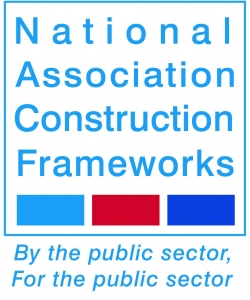
Framework Representative
Damian Donnelly
About Constructing West Midlands (CWM)
CWM is a publicly owned and managed, not-for-profit framework which provides public sector clients within the wider West Midlands region with a fully compliant procurement vehicle for delivery of their construction projects. It offers clients a flexible framework structure which can be tailored to suit individual project requirements and sets high standards for sustainability and the provision of economic and social value.
What do clients love about CWM?
Our clients describe our key attributes as being ‘Local, Reliable & Trustworthy’. We pride ourselves in providing a personal and professional service and our clients greatly value the level of technical expertise, impartial advice and support that CWM provides them. This is reflected in a CWM satisfaction score of 94%*. Clients also see the merit in the fact that we are genuinely ‘by the public sector, for the public sector’.
What makes CWM proud to be a part of the Midlands?
I was born and raised in in the West Midlands and still reside here. The West Midlands has long been a hotbed of creativity, discovery and diversity and we’re famous throughout the world for this. These attributes have been pivotal in the region redefining itself in a post-industrial era, not only surviving but thriving in the face of adversity and emerging as the fastest growing region outside London. It makes me proud to lead on something that can be an instrument in so much of this change whilst also making a positive impact on the lives of local people, whether that’s through the creation of jobs, provision of schools and housing or generally improving the face of the region.
What does CWM do to support your local communities?
We have a strong track record of engaging with the local supply chain, and in particular SMEs, both at a project level (currently achieving over 90%* of spend via SME’s) but also through “Meet the Buyer” events that we regularly support and organise. Almost 60%* of all spend across the CWM Framework is delivered by businesses within a 30-mile radius of our sites and we’re also the only West Midlands framework to mandate payment of the real living wage. All of this is important for ensuring that CWM projects bring economic value to the communities in which we operate and recycle the West Midlands pound locally which, as a regional framework, is incredibly important to us.
We’re also currently working with some of our key Clients to look at more innovative ways of providing real, tangible benefits through supporting community projects which are endorsed by our client organisations and support their strategic objectives.
How did CWM first become involved with the NACF?
We were formerly involved with the West Midlands Regional Improvement Efficiency Partnership (RIEP) and, subsequently, the National Improvement and Efficiency Programme for the Built Environment (NIEP). Following disbandment of the NIEP it was evident that there was still a desire amongst many of its members to continue to work together in a continued effort to promote best practice. CWM were part of a cohort that coalesced around this shared endeavour until the NACF was formally launched in 2014. As a founder member of the NACF we have been an active participant ever since.
Why is NACF important in the construction industry?
For us, NACF membership is a mark of quality and integrity. In an era which has seen, and continues to see, the extensive proliferation of frameworks, often solely as a vehicle for profiteering from the public purse, the NACF ensures that we continue to operate in the interests of serving and supporting our many colleagues across the public sector whilst also promoting sustainable and ethical procurement practices. Given the ever-increasing pressures on public finances it’s also a great forum for pooling our resource and sharing our collective learning for the benefit of the public sector generally.
What would be the CWM’s best piece of advice for a public sector organisation considering using a framework?
Firstly, do your research; check the Contract Notice, make sure that your project falls within the scope of the framework and make sure that you’re eligible to use it. Secondly, remember that not all frameworks are equal; try to choose a not-for-profit framework that is publicly owned and managed, promotes best practice and actively supports their clients (selecting a framework which is NACF accredited will ensure all of these boxes are ticked). Thirdly, get to know the people from the framework who will be supporting you, not just the salespeople. Finally, select a framework that facilitates early contractor engagement to give your project the best chance of success; from our experience the best projects are those where there is regular engagement with the framework Contractors from the earliest stages and clients who undertake this tend to be those which reap the greatest benefits throughout the lifetime of their project.

